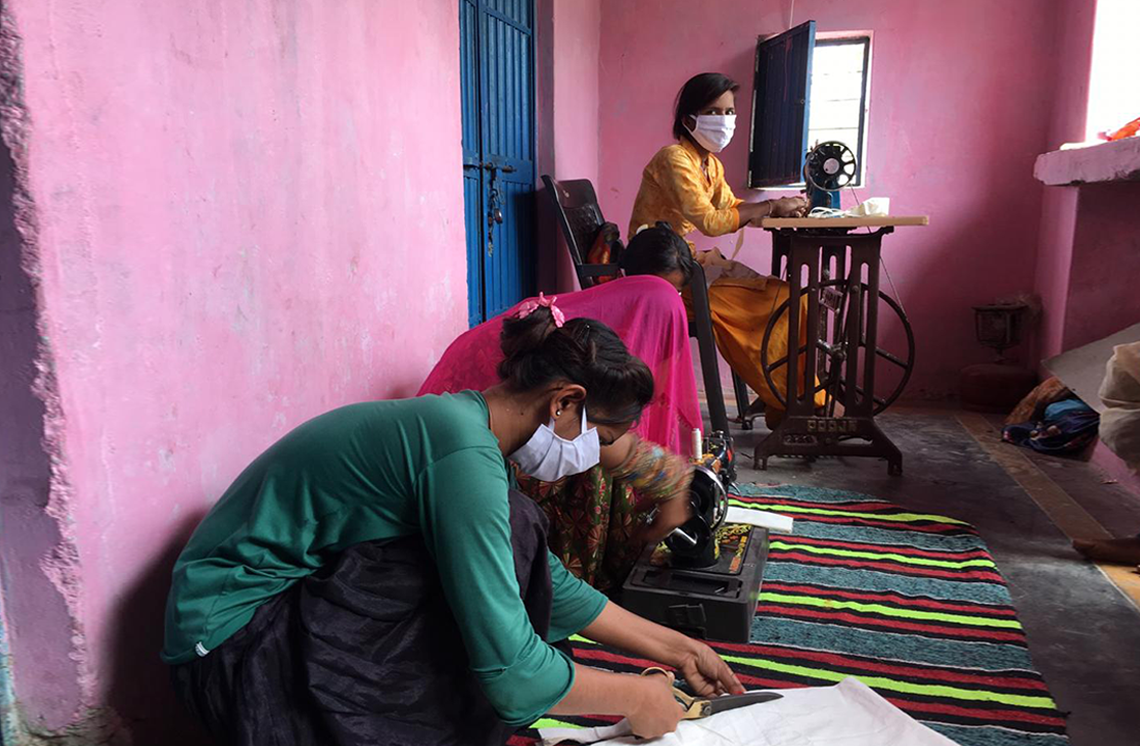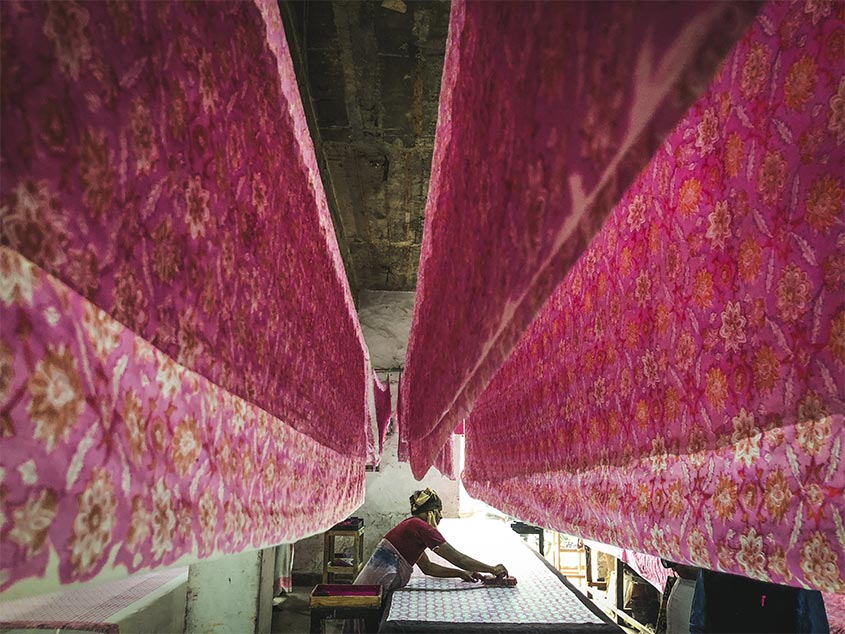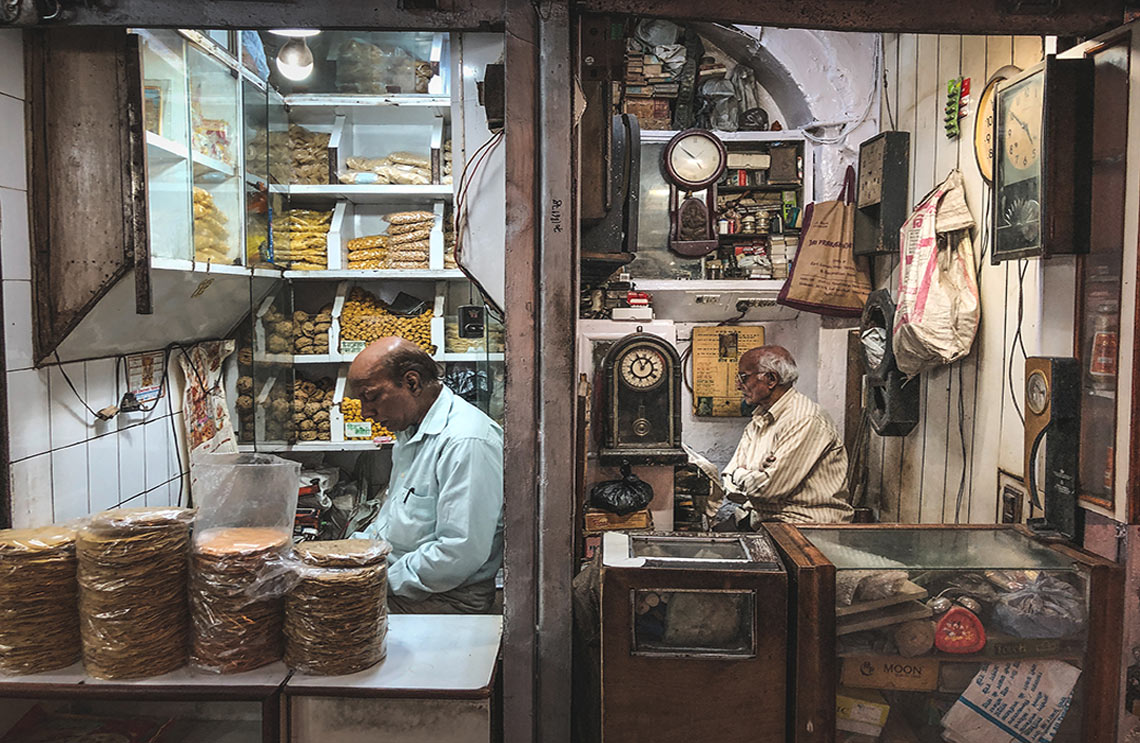
COVID-19 : THE VIRUS THAT MAKES FASHION AWARE

The Fashion system has changed inexorably on Sunday 23 February 2020.
A virus, initially classified as slightly more aggressive than a flu, had received an official baptism: Coronavirus. And fear, silence, pain and bewilderment have arrived. Taking lives and jobs too.
The world of fashion, which is worth around 2.300 billion euros globally, will emerge from the crisis not only very damaged but probably radically changed. The entire production system has jumped, overwhelming millions of people in dozens of different countries: from the worker who works in the textile factory in Bangladesh to the local artisan communities of Southeast Asia, from the shop assistant to the journalists and photographers of fashion magazines up to to stylists, models and influencers from all over the world.

Fast fashion system, the first infected
Most luxury companies and fast fashion chains (which sell cheap and fashionable clothing) commission their clothes where labor costs are low, such as China, Bangladesh or Vietnam. Here the garments are packaged and then shipped to the customers’ warehouses.
Brands sell their products directly (on their website and in their stores) or on large online retailers. The epidemic blocked the whole mechanism.
The closure of factories in February in China stopped many orders from western companies which, in some cases, transferred them to other countries. At the same time, many foreign buyers canceled orders for made-up fabrics and clothes. The shutdown of production was followed by the closure of physical stores across the world, which drastically collapsed demand.
How did the producing countries react?
Abroad, not all factories have been closed by decree.
In Vietnam, temperature is checked for all workers and factories are disinfected every week, silk exports to Afghanistan jumped because too many workers ended up sick, in Eritrea, production stopped because the European factory managers returned home at the beginning of the infection.
The situation is particularly difficult in India, Cambodia, and Bangladesh on especially the small craft communities where for some months now companies have no longer been commissioning work and tourism has literally disappeared. So how do the craftsmen react? The Coronavirus emergency has transformed surgical masks into a little less than unobtainable asset and several companies around the world have temporarily reconverted: today they produce high quality “tailored” masks, all handmade, with quality fabrics and different folds . In Italy, for example, a well-known fashion company has used the fabrics of the bags it had available to make protective masks, trying to observe the manufacturing criteria and choice of materials indicated in manuals created on the subject by public administrations.

Women of Barmer, creative producers of protective masks
In India, various NGOs have already taken up the initiative to involve local female crafts in this conversion, generating possible income for these people in difficulty through work directly from home, under quarantine. This, like many other “solidarity” initiatives, are taking hold in the various countries and represent the tangible sign of the strength that the artisan world has always had in times of difficulty like this, showing professionalism and courage in the job that becomes life for themselves and for others.
Last autumn we were in Barmer in India to visit an NGO of women embroiderers who work in a protected place: their production mainly focused on clothing and tablecloths. We were so fascinated by their welcome that we commissioned a part of our future collection. Well, during the pandemic we managed to get in touch with them and we received amazing photos, which portray our artisan women in the creation of 100% cotton face masks and other protective goods to help the community, like gloves and scarfs. Open but always smiling, with their mastery and courage, they face a moment of total unease with a creative vision that overcomes the daily difficulties with positivity and tenacity.
Là Fuori, therefore, immediately took action: as ethical brand we donated economic support to the community and we commissioned thousands of masks to be sent not just to the USA but also to Italy.
In this moment, our smiling handmade mask are shipping and we thank our women artisans to bring hope with their creativity

A virus that will transform the global perception of ourselves and others
People will have less desire to buy mass market clothing which have no significant cultural value attached to them and they will invest in crafts and art , to support small economies artisans and to keep habitats and cultures alive.
While in the pre-Covid era the experience won over possession, that is, everyone wanted and sought sensational experience to share on social networks, from now on this rule will give way to greater awareness for the socially useful and the transparent information. Companies will also have to recalibrate their way of communicating on social networks and in advertisements: instead of focusing on products, there will be greater attention to what are the values that characterize a brand. It is possible that especially in Europe and the United States, we end up buying less by spending more, choosing clothes and handmade accessories, of greater quality and durability, less tied to the fashions of the moment.
Wearing Là Fuori means make a difference
Our brand was born just few month and with a name, Là Fuori, that in Italian means “out there”. Exactly: be out there! We come to light in a moment of reflection and reconciliation with our identities and values: what we want to take on the road out there is not only the body but above all the mind and heart.

Through our stories at the source of creation, we want to sensitize women to the culture of wearing: a beautiful act of
CONNECTION, RESPONSIBILITY,
LOVE.
Each Là Fuori collection tells a different artisan story and brings a “woman’s smile”, as an emblem of inspiration for those who wear that creation.
We support the community by sharing 10 percent of our profits directly with the weaver, embroiderer and artists whom we work with. This is our answer as ethical lifestyle brand during this global COVID-19 storm: every day you have the opportunity, wearing a dress, to make a difference between those who dress themselves and those who instead wear a value and dream.

